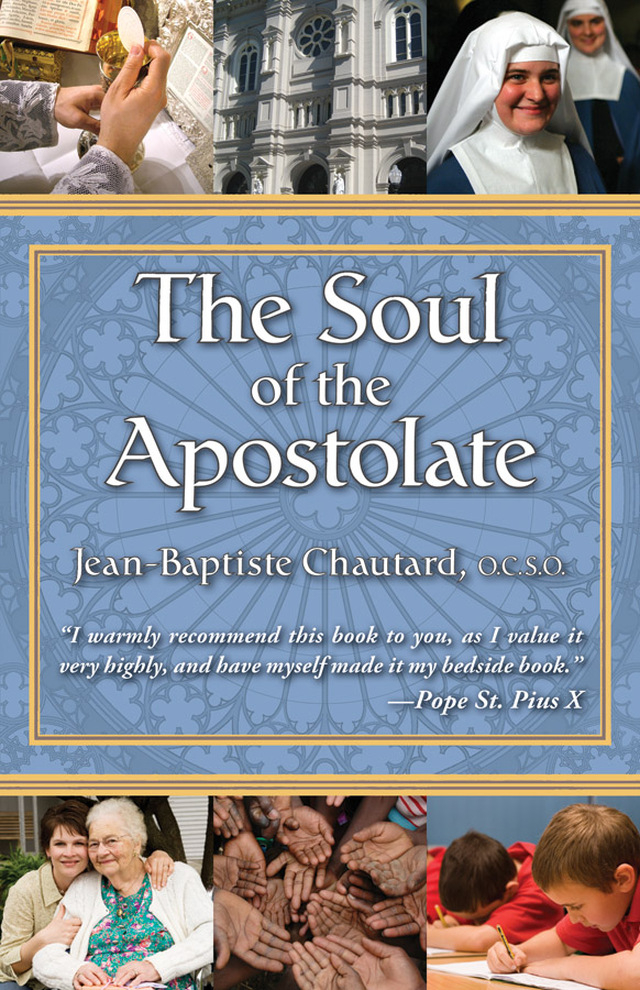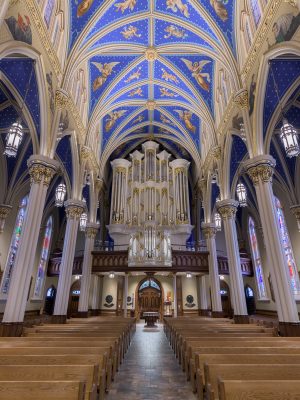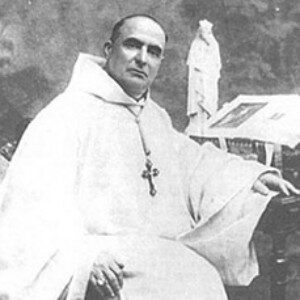EIGHTH TRUTH:
My interior life will be no better than my custody of my heart. “Before all things keep a guard over thy heart, for from it springs forth life.” This custody of the heart is simply a HABITUAL or at least frequent anxiety to preserve all my acts, as they arise, from everything that might spoil their motive or their execution. It is a peaceful, unexcited anxiety, without any trace of strain, yet powerful because it is based on childlike confidence in God.
It is the work of the heart and the will, rather than of the mind, which has to remain free to carry out its duties. Far from being an impediment to activity, the custody of the heart perfects it, by ordering it to the Spirit of God, and adjusting it to the duties of our state of life. It is an exercise that can be carried on at any hour. It is a quick glance, from the heart, over present actions and a peaceful attention to all the various phases of an action, as we perform it. It is carrying out exactly the precept, “Age quod agis.” The soul, like an alert sentry, keeps watch over every movement of its heart, over everything that is going on within it: all its impressions, intentions, passions, inclinations; in a word, all its interior and exterior acts, all its thoughts, words, and deeds.
Custody of the heart demands a certain amount of recollection: there is no place for it in a soul given to dissipation. By frequently following this practice, we will gradually acquire the habit of it. Quo vadam et ad quid? Where am I going and why? What would Jesus do? How would He act in my place? What advice would He give me? What does He want from me, at this moment? Such are the questions that spring up spontaneously in the soul that is hungry for interior life.
For the soul that goes to Jesus through Mary, this custody of the heart takes on a still more affectionate quality, and recourse to this dear Mother becomes a continual need for his heart.
NINTH TRUTH:
Jesus Christ reigns in a soul that aspires to imitate Him seriously, wholly, lovingly. This imitation has two degrees: 1) The soul strives to become indifferent to creatures, considered in themselves whether they suit its tastes or not. Following the example of Jesus, it seeks no other rule, in this, but the will of God: “I came down from heaven not to do my own will, but the will of Him that sent me.”
2) The soul shows more readiness in doing things that are contrary to its nature, and repugnant to it. And thus it carries out the agendo contra that St. Ignatius speaks of in his famous meditation on the reign of Christ. It is acting against natural inclination in order to tend, by preference, to what imitates the poverty of the Savior, and His love for sufferings and humiliations. “For Christ did not please Himself.” Following the expression of St. Paul, the soul then truly knows our Lord: “You have learned Christ.”
TENTH TRUTH:
No matter what my condition may be, if I am only willing to pray and become faithful to grace, Jesus offers me every means of returning to an inner life that will restore to me my intimacy with Him, and will enable me to develop His life in myself. And then, as this life gains ground within me, my soul will not cease to possess joy, even in the thick of trials, and the words of Isaias will be fulfilled in me: “Then shall thy light break forth as the morning, and thy health shall speedily arise, and thy justice shall go before thy face, and the glory of the Lord shall gather thee up. Thou shalt call, and the Lord shall hear, thou shalt cry and He shall say: ‘Here I am.’ And the Lord will give thee rest continually, and will fill thy soul with brightness and will deliver thy bones, and thou shalt be like a watered garden, and like a fountain of water whose waters do not fail.”
ELEVENTH TRUTH:
If God calls me to apply my activity not only to my own sanctification, but also to good works, I must establish this firm conviction, before everything else, in my mind: Jesus has got to be, and wishes to be, the life of these works.
My efforts, by themselves, are nothing, absolutely nothing. “Without Me you can do nothing.” They will only be useful, and blessed by God, if by means of a genuine interior life I unite them constantly to the life-giving action of Jesus.
But then they will become all-powerful: “I can do all things in Him who strengtheneth me.” But should they spring from pride and self-satisfaction, from confidence in my own talents, from the desire to shine, they will be rejected by God: for would it not be a sacrilegious madness for me to steal, from God, a little of His glory in order to decorate and beautify myself?
This conviction, far from robbing me of all initiative, will be my strength. And it will make me really feel the need to pray that I may obtain humility, which is such a treasure for my soul, since it is a guarantee of God’s help and of success in my labors.
Once I am really convinced of the importance of this principle, I will make a serious examination of myself, when I am on retreat, to find out: 1) if my conviction of the nothingness of my own activity, left to itself, and of its power when united to that of Jesus, is not getting a little tarnished; 2) if I am ruthless in stamping out all self-satisfaction and vanity, all self-admiration in my apostolate; 3) if I continue unwaveringly to distrust myself; 4) and if I am praying to God to preserve me from pride, which is the first and foremost obstacle to His assistance.
This Credo of the interior life, once it has become for my soul the whole foundation of its existence, guarantees to it, even here below, a participation in the joys of heaven. The interior life is the life of the elect. It fits in with the end God had in view when He created us. It answers the end of the Incarnation: “God sent His only begotten Son into the world that we may live by Him.” It is a state of complete happiness: “The end of human creatures is union with God; and in this their happiness consists.” In this happiness, if thorns are seen from the outside, yet roses bloom within: but with the joys of the world it is just the reverse. “How pitiable they are, the poor people out in the world,” the Cure of Ars used to say, “they wear, over their shoulders, a mantle lined with thorns; they cannot make a move without being pierced. But true Christians have a mantle lined with soft fur.” Crucem vident, unuctionem non vident.
Heavenly state! The soul becomes a living heaven. Then, like St. Margaret Mary, it can sing: Je possède en tout temps et je porte en tout lieu Et le Dieu de mon coeur et le Coeur de mon Dieu. (I ever possess, and take with me everywhere, the God of my heart and the Heart of my God.) It is the beginning of eternal bliss, Inchoatio quaedam beatitudinis. Grace is the seed of Heaven.
This article is taken from a chapter in The Soul of the Apostolate by Jean-Baptiste Chautard which is available from TAN Books.









